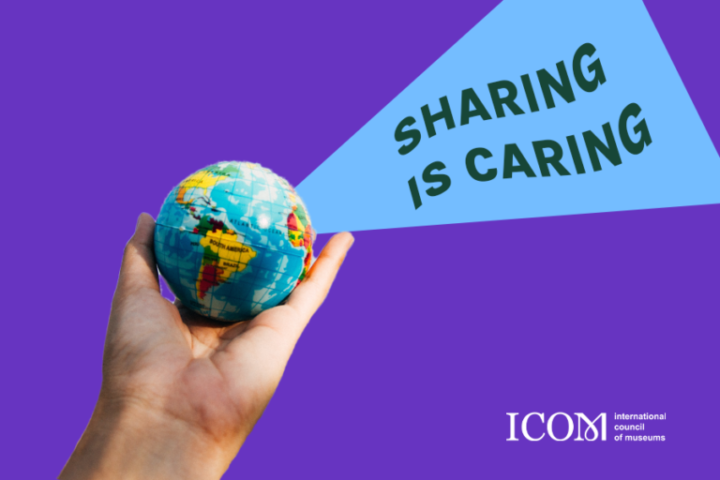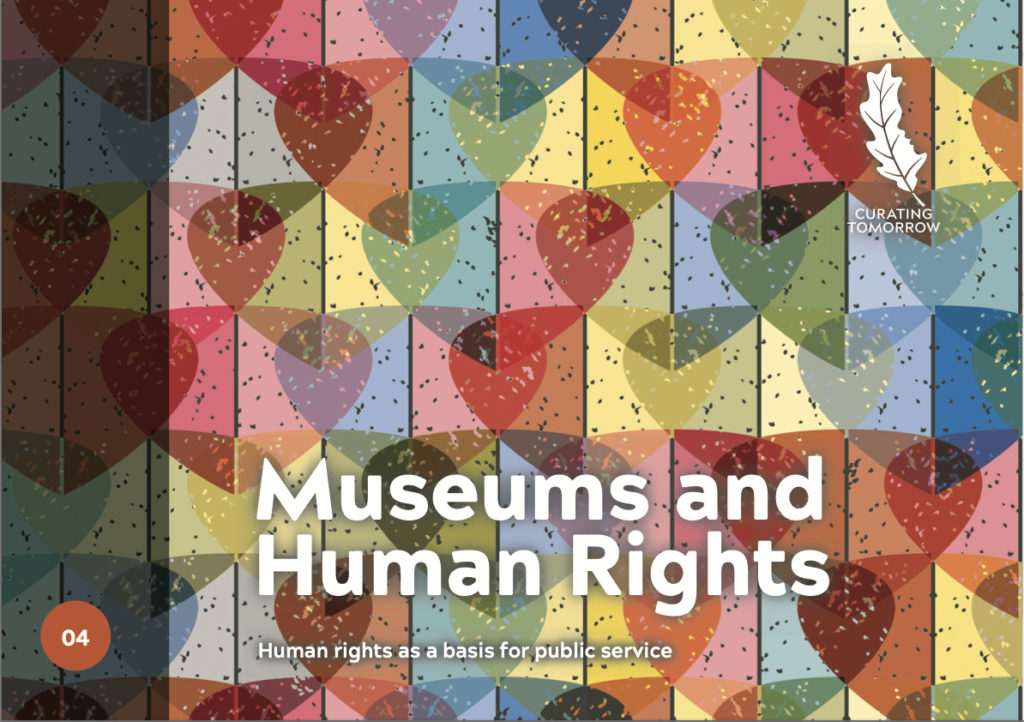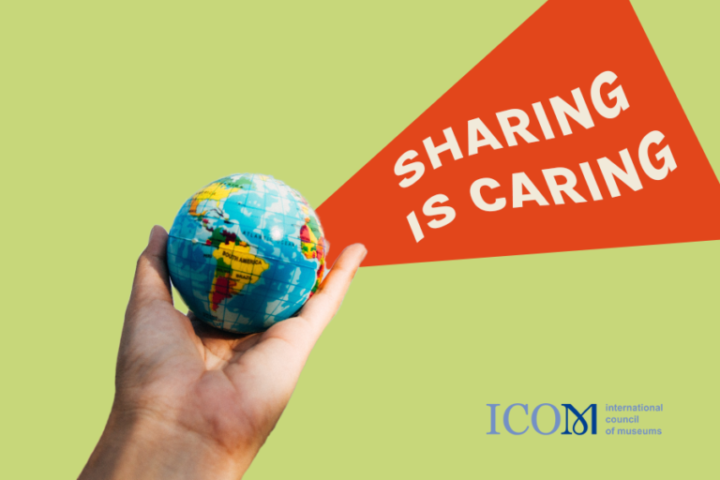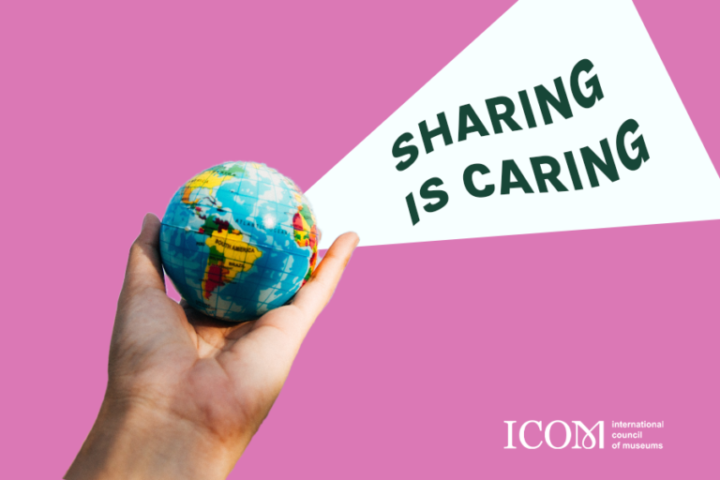How many human rights can you name? Do you know your rights, or the rights of others? What have they got to do with museums and cultural institutions anyway? If you’re unsure of the answer to any of these questions, then the open-access guide ‘Museums and Human Rights: human rights as a basis for public service’ should be of use to you.
Whether they realize it or not, museums, and indeed every individual who works in and with them, have duties to fulfil regarding human rights. In fact, every individual in society has duties to uphold the rights of others, just as they should expect to be able to attain their own rights. If people are to exercise their rights and responsibilities, they need to know about them, care about them, understand how they relate to their lives and work, and to have effective, transparent institutions that fulfil their responsibilities and obligations.
However, for the most part, human rights are not even talked about in museums or in society. Few museums incorporate human rights perspectives into their planning or across their areas of activity, and the basis of museums’ decisions – their visions, missions, programming decisions and management – is often untransparent.
The open-access guide ‘Museums and Human Rights: human rights as a basis for public service’ aims to support museums and museum workers to understand and fulfil their human rights duties with greater confidence, to use human rights as a practical tool for more effective public service, and to enable more people – whether as individuals, groups or communities – to be able to exercise their basic rights and freedoms through museums. The guide was produced in 2020 by Henry McGhie, who runs the UK-based consultancy Curating Tomorrow, working to empower museums and similar institutions to contribute to sustainable development agendas. Henry was a member of the ICOM Sustainability Working Group from 2018–23, and helped draft the ICOM Sustainable Development Action Plan.
‘Museums and Human Rights’ sets out some of the background on human rights, in terms of the Universal Declaration of Human Rights from 1948, and the two International Covenants that wrote its contents into international law: the Covenant on Civil and Political Rights, and the Coventant on Economic, Social and Cultural Rights. These together make up the International Bill of Rights, with both legal and, perhaps even more importantly, moral standing.
The guide explains the different categories of rights (civil and political, economic, social and cultural), but emphasises that these should not be seen as entirely separate, as rights are indivisible and we can’t just support some and ignore others. People’s cultural rights – to participate in cultural life, share in scientific advancement, freedom of expression and to seek information, and to education – are also fundamentally connected to their abilities to take part in wider social and political life.
‘Museums and Human Rights’ explores the contents of some of the most important international agreements – Conventions that are legally binding, and Declarations that are voluntary. Although few people are probably familiar with them, many agreements, including the Convention on the Elimination of Racial Discrimination (1965), Convention on Elimination of All Forms of Discrimination Against Women (1979), Convention on the Rights of Disabled Persons (2006), Declaration on the Rights of Indigenous Peoples (2007), and the environmental agreements such as the Paris Agreement (2015), all include specific mentions of cultural activity, and in some cases they specifically mention of museums. The Right to Development (1986) is a particularly important agreement, as it outlines how people should be active agents in their own development, rather than passive recipients of the decisions of authorities or institutions (including museums). The guide highlights some of the ways that museums can contribute more effectively to these agreements, through education, cultural participation, management and partnerships.
Lastly, the guide explores the Human Rights-based Approach, which is a planning and project management approach that aims to get away from well-intended, but ultimately inappropriate, approaches that make organisations the distributors of charity or ‘aid’ that disempower people and communities. The Rights-based Approach acknowleges that people have to be active participants in shaping the services and opportunities they are provided with, including from public institutions such as museums. The Rights-based Approach gives us a constructive framework that is based on international human rights standards, that involves both people and organisations in shaping activities, and that results in more people being provided with opportunities to experience their rights, and empowers institutions to fulfil their rights-based responsibilities. The Approach acknowledges that people – usually everyone – has rights, and that institutions that affect these rights have responsibilities and obligations to support them; this makes people ‘rights bearers’ and institutions ‘duty-holders’.
In 2019, ICOM committed to contributing towards the Sustainable Development Goals. Human rights and rights-based approaches are foundational in the SDGs, and the SDGs have the main human rights agreements written throughout the 17 goals. This guide can help you to understand the relationship between sustainable development and human rights, and to get to work to contribute to sustainable development more effectively, through respecting, protecting and fulfilling human rights, for everyone. That surely constitutes effective and transformative service to society.
Guide on Museums and Human Rights
ABOUT SHARING IS CARING
A dedicated space where we come together to exchange valuable information, resources, and tools within the museum community.
At ICOM, we firmly believe that sharing knowledge is a powerful act. With this new section, we strive to facilitate a network of support and engagement. Our aim is to create a platform where our members can access a wealth of information, gain fresh perspectives, and forge connections with other museums and professionals worldwide.
Here you we will share a diverse range of resources carefully curated by ICOM. From insightful toolkits and engaging documents to research papers, that we believe will prove invaluable to our members.



